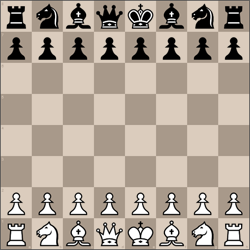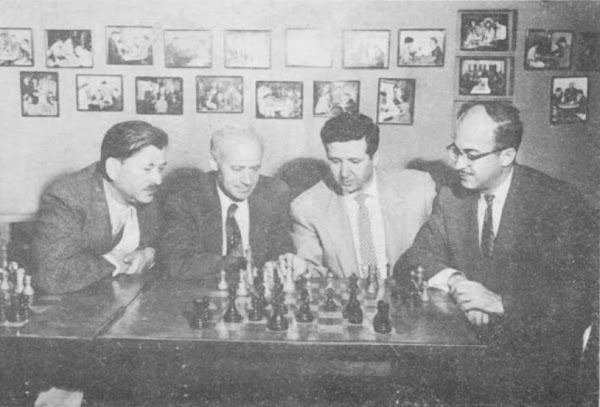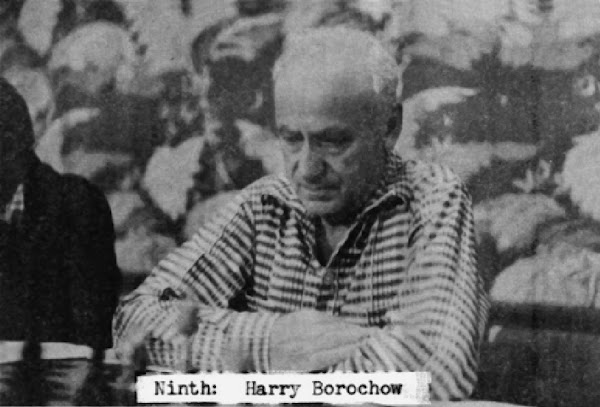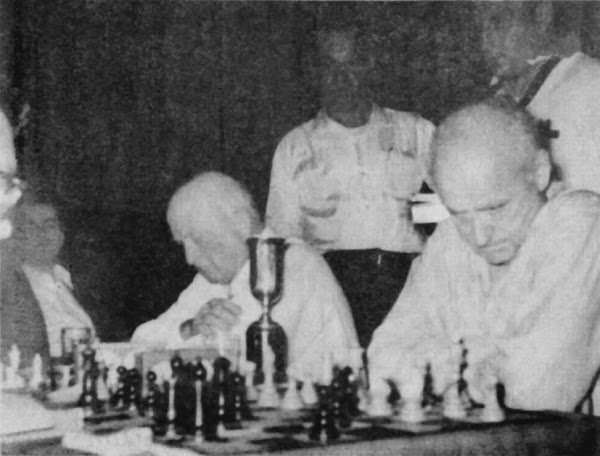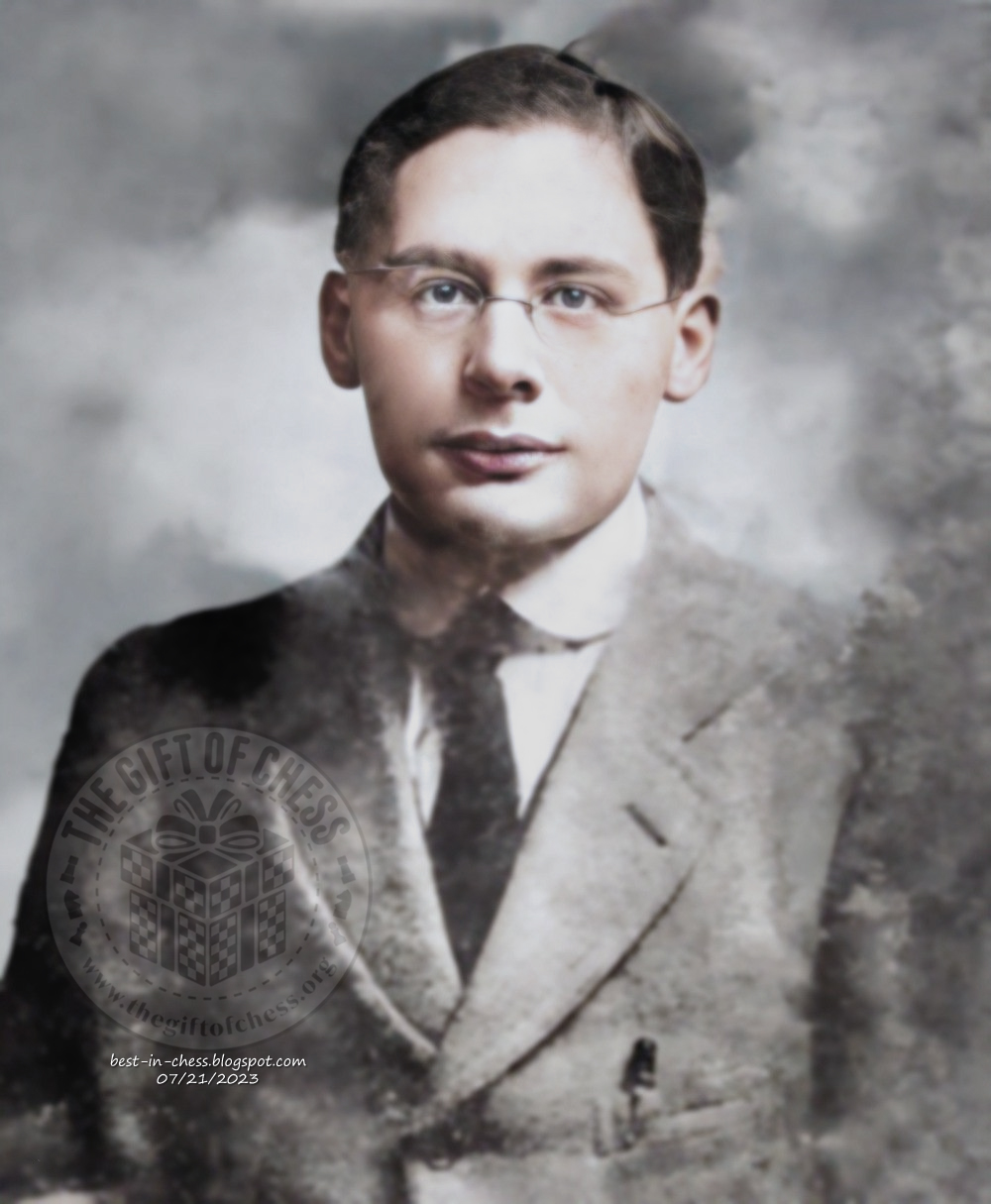Back to Home Index
Amos Burn, Chess Champion, unknown portrait date.
November 26 1925
Liverpool Daily Post, Liverpool, Merseyside, England, Thursday, November 26, 1925
FAMOUS CHESS MASTER.
SUDDEN DEATH OF MR. AMOS BURN
Mr Amos Burn, the famous Liverpool chops master died suddenly in London yesterday. Mr. Burn who was in his seventy-seventh year had appeared to be in his usual good health until Tuesday evening when at his flat at Brook-green, Hammersmith, he entertained his friend and fellow-member of the committee of the City of London Chess Club, Mr. G. E. Smith to supper and a discussion of chess problems.
After the meal the two men were sitting chatting together when Mr. Burn put his hand to his head and said “What a pain I have got here.” Rising from his chair he suddenly staggered and would have fallen had not his friend saved him. A doctor was called and found that Mr. Burn was suffering from a stroke. His friend remained with him during the night, but Mr. Burn passed away at 2 pm yesterday.
Mr. Burn, writes a chess correspondent, was the last distinguished survivor of the-great period in chess marked by the domination of Steinitz. A contemporary of Blackburne he was a successful representative of this country in tournament after tournament, and at his best was a match for any player in the world. In his style he combined brilliance with the soundness characteristic of what was then called the modern school.
International Reputation.
A winner in international tournaments during a period of thirty years prior to the war he played his last big game in 1911 against Marshall, the American champion, whom he succeeded in beating in one of the “British-born v. American-born chess cable matches and thus enabled the City of London Chess Club to win outright the Anglo-American Chess Challenge Trophy presented by the late Sir George Newnes.
The news of his death will be a great shock not only in this country but throughout the world. Time had dealt kindly with him and in spite of his age he not only followed with the keenest interest all movements in the chess world and all developments of theory but still enjoyed a game at the City of London Chess Club.
As chess editor of the “Field” since 1913 he was universally regarded as the foremost chess journalist and perhaps the greatest authority on the game.
The Daily Telegraph, London, Greater London, England, Thursday, November 26, 1925
Mr. Amos Burn.
Mr. Amos Burn, for twelve years chess editor of the ”Field” died yesterday, aged 76. On Tuesday evening, at his flat at Brook-green Hammersmith, he entertained his fellow member on the committee of the City of London Chess Club, Mr. G. E. Smith, when he suddenly staggered, and a doctor who was immediately called found Mr. Burn was suffering from a stroke. His condition was hopeless and he passed away at two p.m. yesterday. A winner in international tournaments for thirty years prior to the war, Mr. Burn was a prominent figure in the chess world. Four years ago he placed and beat Mr. Marshall, the American champion, in one of the British born v. American-born cable matches and thus enabled the City of London Chess Club to win outright the Anglo-American Chess Challenge trophy presented by the late Sir George Newnes.
The Guardian, London, Greater London, England, Thursday, November 26, 1925
MR. AMOS BURN.
A FAMOUS CHESS MASTER.
Mr. Amos Burn, the famous chess master, and since the autumn of 1913 the chess editor of the “Field,” died suddenly in London yesterday afternoon.
Mr. Burn, who was in his seventy-seventh year, had appeared to be in his usual good health until Tuesday evening, when at his flat at Brook Green, Hammersmith, he had a stroke while chatting with his friend and fellow-member of the committee of the City of London Chess Club, Mr. G. E. Smith.
A winner in international tournaments during a period of thirty years before the war, Mr. Burn was one of the best-known personalities in the world of chess. He played his last big game in 1911 against Marshall, the American champion, whom he succeeded in beating in one of the “British born v. American born” chess cable matches, and thus enabled the City of London Chess Club to win outright the Anglo-American Chess Challenge Trophy presented by the late Sir George Newnes. Mr. Burn was a native of Hull, but was for many years resident of Liverpool, of whose long-established chess club he was the most distinguished member.
December 01 1925
Liverpool Daily Post, Liverpool, Merseyside, England, Tuesday, December 01, 1925

THE LATE MR. AMOS BURN.
A GREAT LIVERPOOL CHESS PLAYER.
Supplementing the obituary notice in the “Daily Post” of Mr. Amos Burn, the great chess player, a correspondent writes:—
A native of Hull, Mr. Burn was apprenticed to a firm of Liverpool merchants, and joined the Liverpool Chess Club in 1865, where he quickly came to the front by winning its handicap tournament. He was elected president eight times from 1888-91 and from 1908-11, the club's prominent position being largely due to his enthusiasm and support. He possessed rare power of subtle analysis, of which the following is an instance. In the course of a correspondence game with Glasgow which he was conducting the Liverpool team wired “We announce mate in twenty-eight moves.” Glasgow was silent for some days and then came their laconic reply, “We resign.”
Mr. Burn took leading parts in twenty-two international tournaments, winning at Amsterdam with Lasker second; he also won the Counties Championship Challenge Cup in 1876 by three successive victories, as well as the Craigside Welsh Cup on similar conditions, when Atkins twice took second place. Mr. Burn considered his finest game was played in the Cologne Tournament when he defeated Steinitz in a game of 72 moves.
A Classic Game.
The following game now a “classic” from the Bradford Congress, 1888, is described as “an arduous struggle, conducted by Burn with the most consummate mastership throughout” (Pollock):—
Joseph Henry Blackburne vs Amos Burn
4th BCA Congress, Bradford (1888), Bradford ENG, rd 10, Aug-13
French Defense: Steinitz. Bradford Attack Variation (C11) 0-1
And White resigns.
Most skilfully concluded from Burn's 35th move.
The fine game between Marshall and Burn in the England v. America cable match resulted by the victory of the British master in the trophy being retained by the London Chess Club. The game hinged on a combination for which Marshall played having calculated that he would get three pieces for his Queen, but Burn, having calculated deeper, he only got two pieces for the sacrifice, when his defeat was only a matter of time and careful play.
The Birmingham Post, Birmingham, West Midlands, England, Tuesday, December 01, 1925
The death occurred last week of Mr. Amos Burn in his seventy-seventh year following a stroke. He and the late Mr. J. H. Blackburne were for a very long period perhaps the two most successful representatives of British chess at the various international tournaments, and Burn on one occasion gained first place in a contest in which Dr. Lasker was one of the competitors. He possessed a great knowledge of the game and had a very sound and solid style of play. Of a kindly but reserved nature he was always ready to help in the examination of games and positions. As representative of the “Field” whose chess columns he had conducted since the death of Mr. L. Hoffer in 1913, he was present at many of the British Federation's congresses and was never at a loss in pointing out to the leading competitors where their games had gone wrong.
December 21 1925
The Guardian, London, Greater London, England, Monday, December 21, 1925
THE LATE MR. AMOS BURN.
The committee of the Liverpool Chess Club passed the following resolution at their last meeting:— “That this committee, having heard with deep regret of the death of Mr. Amos Burn, desire to place on record their appreciation of his services in building up the playing strength of the club. Being the foremost player in the country, his presence was a wonderful stimulus in improving play generally. He took a leading part in promoting chess activities in the club, of which he was president on no less that nine different occasions, and had held the distinction of being an honorary member for 38 years. The committee further resolve that an expression of their deepest sympathy be sent to Mr. Burn's relatives.”












